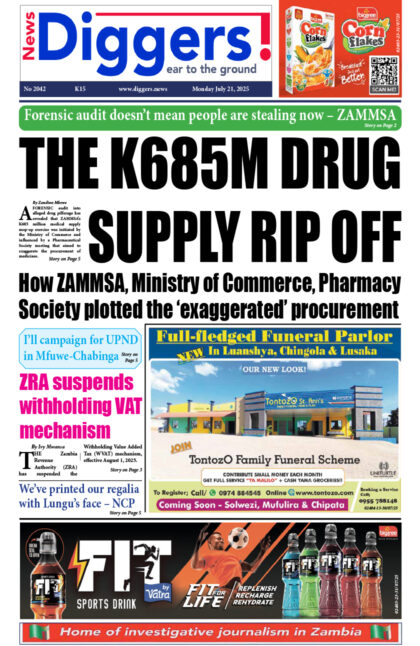The SADC Climate Services Centre (SADC-CSC) has called on Zambia and other countries in the region experiencing the heat-wave to take necessary precautions in order to avoid heat related health problems, such as heat stroke.
In a statement dubbed “extreme temperature alert” for the 2019/20 season released on yesterday, SADC-CSC warned that maximum temperatures reaching the heat wave thresholds were expected in central parts of the SADC region.
SADC-CSC stated that in some parts of the region there would be need to adhere to all the health advisories provided by local institutions in member states where there was a high probability for a heat-wave.
“Persistent temperatures in the range of 30 degrees to 35 degrees are expected in bulk of central SADC in the next five days. Parts of central SADC will experience temperatures above 35 degrees over a consecutive period of three days and occasions where temperatures have a high probability to exceed 40 degrees, thus reaching the threshold for heatwave alert during the forecast period. Extreme south-eastern Angola, north and eastern most parts of Botswana, eastern half of Eswatini, south-western parts of Madagascar, southern Malawi, most of Mozambique, extreme north eastern Namibia, eastern fringes of South Africa, south and eastern Zambia, northern fringes and southern half of Zimbabwe will have a high probability to experience a heatwave during the period of 25th to 31st October, 2019,” the statement read.
“Most of the central parts of the SADC region stretching from southern Angola through eastern Namibia, Botswana, most of Zambia, Zimbabwe, southern Malawi to northern Mozambique and southern Tanzania are in a Heatwave Watch category. Western Madagascar is also in a Watch category for a potential heat wave during the forecast period of 25th to 31st October, 2019.”
Meanwhile, SADC-CSC encouraged the states affected by the heat wave in parts of the region to take the necessary steps to avoid heat related health problems like stroke.
“For parts of the region where there is a high probability for a heat-wave to be experienced, there is need to adhere to all the health advisories provided by local institutions in member states. Precautions are advised in these areas to avoid heat related health problems, such as heat stroke amongst others. Users are encouraged to consult the National Meteorological and Hydro meteorological Services (NMHSs) in the SADC member states interpretation and the relevant national institutions. The next advisory will be issued dependant on a sustained high temperature forecast expected to occur in more than a single SADC member state,” read the statement.



















